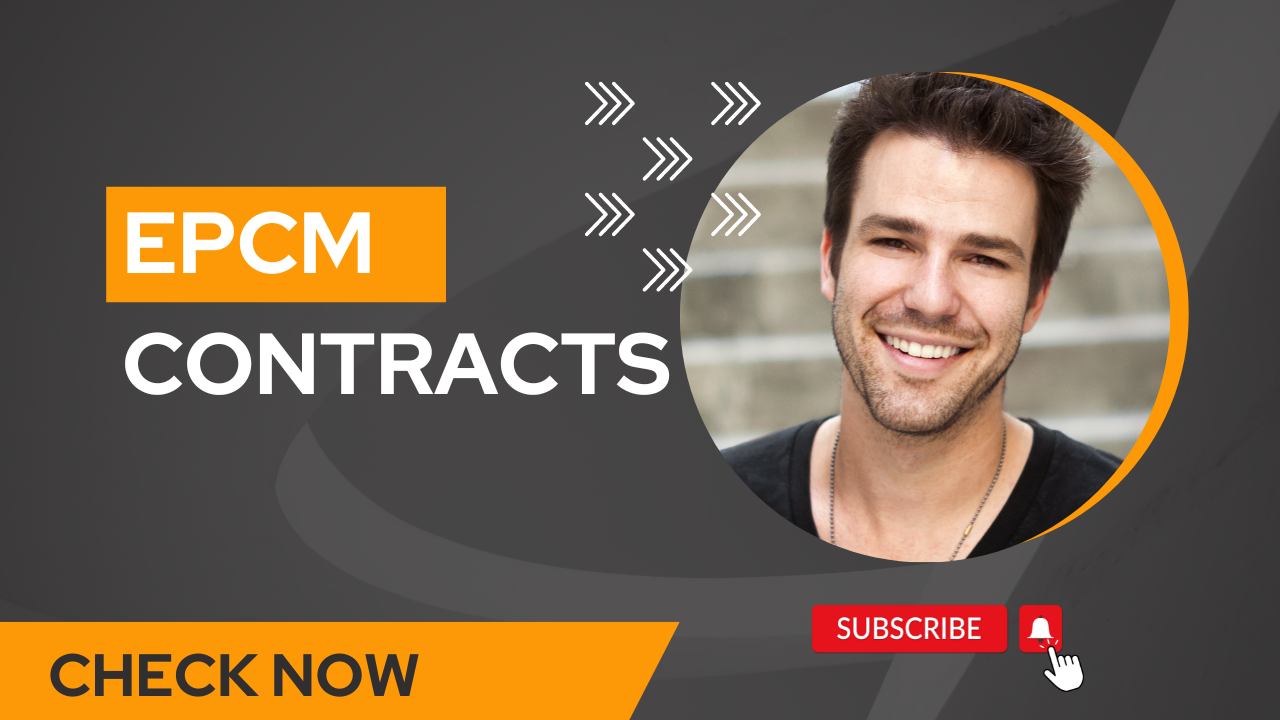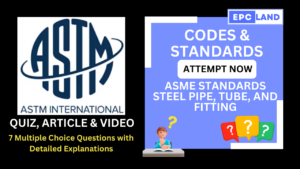Introduction
In the dynamic world of project management and procurement, EPCm Contracts have emerged as a crucial framework for successful execution. These contracts combine Engineering, Procurement, Construction, and Management (EPCm) aspects, streamlining processes and ensuring effective project completion. This article dives deep into the realm of EPCm Contracts, providing insights, answering FAQs, and shedding light on their significance.
Table of Contents
EPCm Contracts: An Overview
EPCm Contracts, short for Engineering, Procurement, Construction, and Management Contracts, represent a holistic approach to project execution. These contracts integrate various phases of a project, fostering collaboration, efficiency, and cost-effectiveness. EPCm Contracts involve multidisciplinary teams working together to plan, design, procure materials, construct, and manage projects from inception to completion.
The Key Components of EPCm Contracts
To truly understand the power of EPCm Contracts, let’s break down their core components:
Engineering:
The engineering phase involves conceptualizing the project, creating detailed designs, and defining technical specifications. It sets the foundation for the entire project lifecycle.
Procurement:
Procurement focuses on acquiring the necessary materials, equipment, and resources to bring the project to life. Strategic sourcing and vendor management play a pivotal role here.
Construction:
The construction phase transforms designs into reality. Skilled labor, quality control, and adherence to safety standards are paramount during this phase.
Management:
Project management encompasses planning, scheduling, risk management, and coordination among various teams. Effective management ensures timely delivery and adherence to budgets.
Benefits of EPCm Contracts
Embracing EPCm Contracts can yield a plethora of advantages for project stakeholders:
- Seamless Integration: EPCm Contracts integrate diverse project aspects, fostering smoother collaboration and communication.
- Enhanced Efficiency: The streamlined process leads to better resource utilization, reduced delays, and optimized project timelines.
- Risk Mitigation: Comprehensive risk assessment and management are embedded in EPCm Contracts, minimizing uncertainties.
- Cost Control: By merging procurement and construction phases, cost overruns are minimized, resulting in better financial control.
- Quality Assurance: Rigorous engineering standards and quality checks ensure that projects meet or exceed expectations.
Exploring the EPCm Contract Lifecycle
The lifecycle of an EPCm Contract can be broken down into several stages:
Pre-Contract Phase:
In this phase, feasibility studies are conducted, project scopes are defined, and initial budgets are estimated. The groundwork is laid for the contract negotiation process.
Contract Negotiation:
Detailed negotiations take place, covering terms, conditions, scope changes, pricing, and project timelines. Clear communication and transparency are vital to avoid misunderstandings later.
Project Execution:
Once the contract is signed, the project moves into execution mode. Engineering, procurement, and construction activities are executed in a coordinated manner.
Monitoring and Control:
Project progress is continually monitored against milestones and timelines. Adjustments are made as needed to keep the project on track.
Project Completion:
Upon successful execution, the project is formally completed, and the deliverables are handed over to the client. A comprehensive review ensures all objectives are met.
Addressing FAQs about EPCm Contracts
How do EPCm Contracts differ from traditional EPC Contracts?
While both EPC (Engineering, Procurement, Construction) and EPCm Contracts involve similar phases, EPCm Contracts introduce an additional management aspect. EPCm Contracts encompass project management and coordination, ensuring a more integrated approach.
What types of projects are suitable for EPCm Contracts?
EPCm Contracts are particularly beneficial for complex projects that require seamless collaboration among engineering, procurement, construction, and management teams. Industries such as energy, infrastructure, and manufacturing often opt for EPCm Contracts.
How can effective project management impact EPCm Contracts?
Effective project management ensures that all project phases are aligned, risks are mitigated, and resources are optimized. This results in better cost control, timely delivery, and overall project success.
What role does risk management play in EPCm Contracts?
Risk management is pivotal in EPCm Contracts. Identifying potential risks early allows for proper planning and mitigation strategies, reducing the likelihood of costly delays or errors.
Are there any disadvantages to EPCm Contracts?
While EPCm Contracts offer numerous benefits, they require strong communication and coordination among various teams. Inadequate collaboration could lead to misalignment and project inefficiencies.
How can I select the right EPCm contractor for my project?
Choosing the right EPCm contractor involves assessing their experience, track record, team capabilities, and project management methodologies. Seeking referrals and conducting thorough due diligence is essential.
Conclusion
EPCm Contracts have revolutionized project management by integrating engineering, procurement, construction, and management into a cohesive framework. This approach not only enhances efficiency and cost control but also reduces risks and ensures project success. By understanding the intricacies of EPCm Contracts, you can embark on projects with confidence, knowing that you have a comprehensive strategy for success.
Recommended courses (Published on EPCLand):
- Basics of Piping Engineering
- Piping Layout Engineering
- Piping Material Engineering
- Piping Stress Analysis
- Complete Course on Piping Engineering
- Material Requisitions
- Piping Material Specifications
- Valve Material Specifications
Related Video
Attempt Quiz
Question 1:
What does EPCm stand for?
Explanation: EPCm stands for Engineering, Procurement, Construction, and Management. It is a type of contract that involves comprehensive project management services in addition to traditional EPC activities.
Question 2:
What is the primary objective of an EPCm contract?
Explanation: The primary objective of an EPCm contract is to provide comprehensive project management services along with the traditional Engineering, Procurement, and Construction (EPC) activities, ensuring successful project delivery.
Question 3:
Which party is responsible for managing the overall project execution in an EPCm contract?
Explanation: In an EPCm contract, an integrated project management team, comprising representatives from engineering, procurement, and construction disciplines, is responsible for managing the overall project execution, from planning to completion.
Question 4:
What additional role does the “m” in EPCm represent?
Explanation: The “m” in EPCm represents “Management.” It signifies the additional project management services provided in an EPCm contract, including coordination, planning, scheduling, and overall management of the project.
Question 5:
What is a key advantage of EPCm contracts?
Explanation: A key advantage of EPCm contracts is the streamlined decision-making process. The integrated project management team ensures efficient communication, collaboration, and decision-making, leading to better project outcomes.



